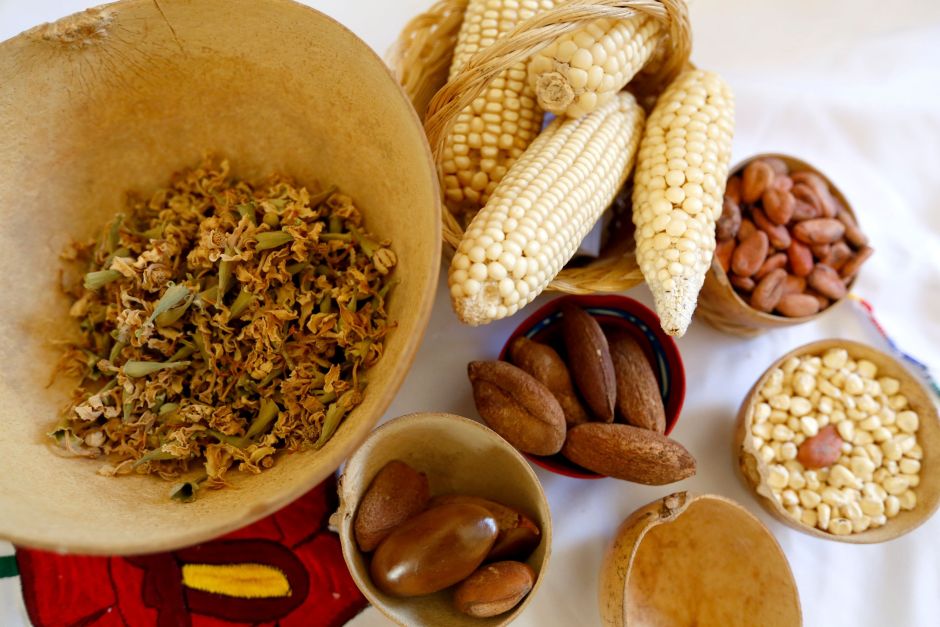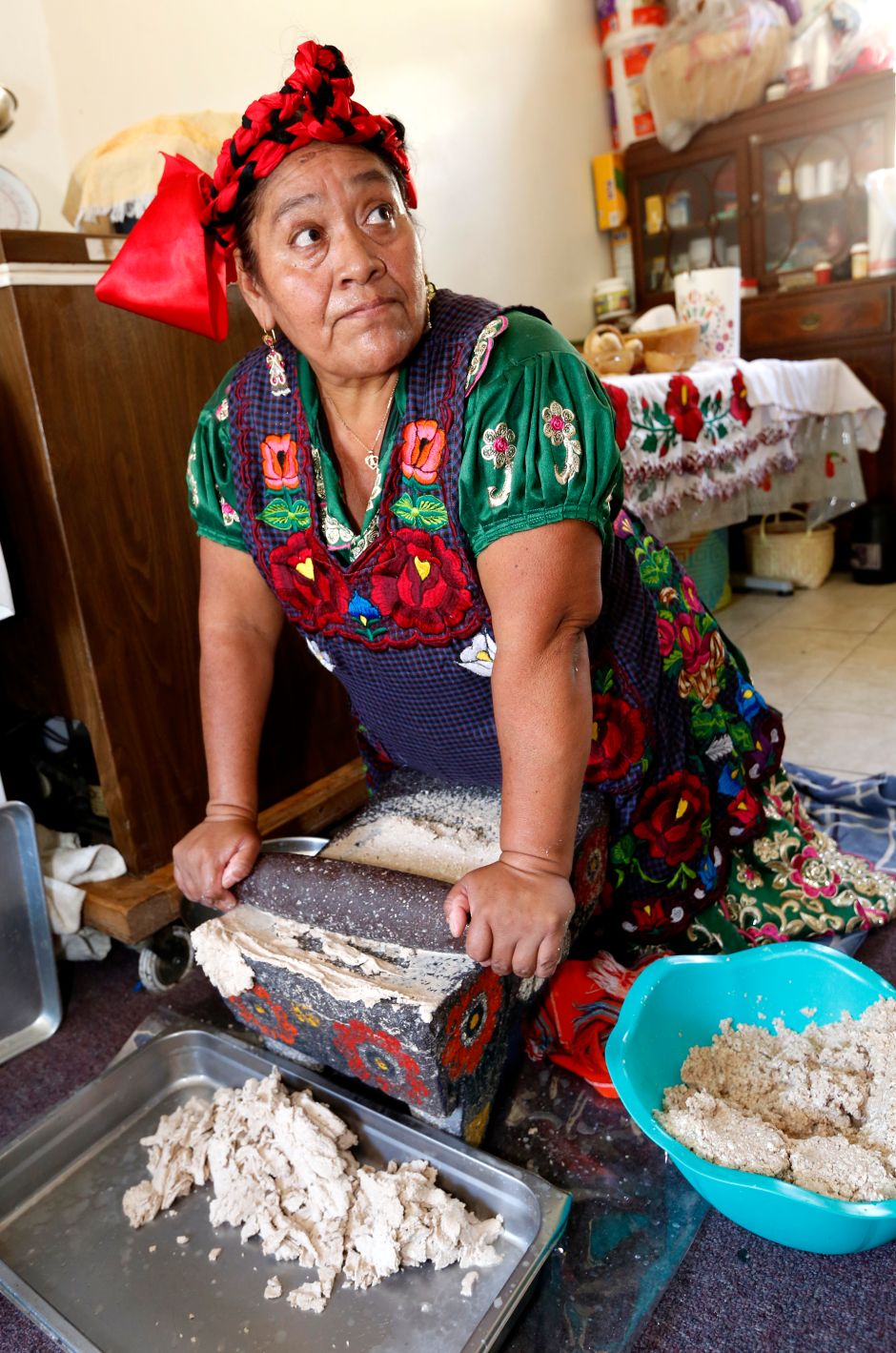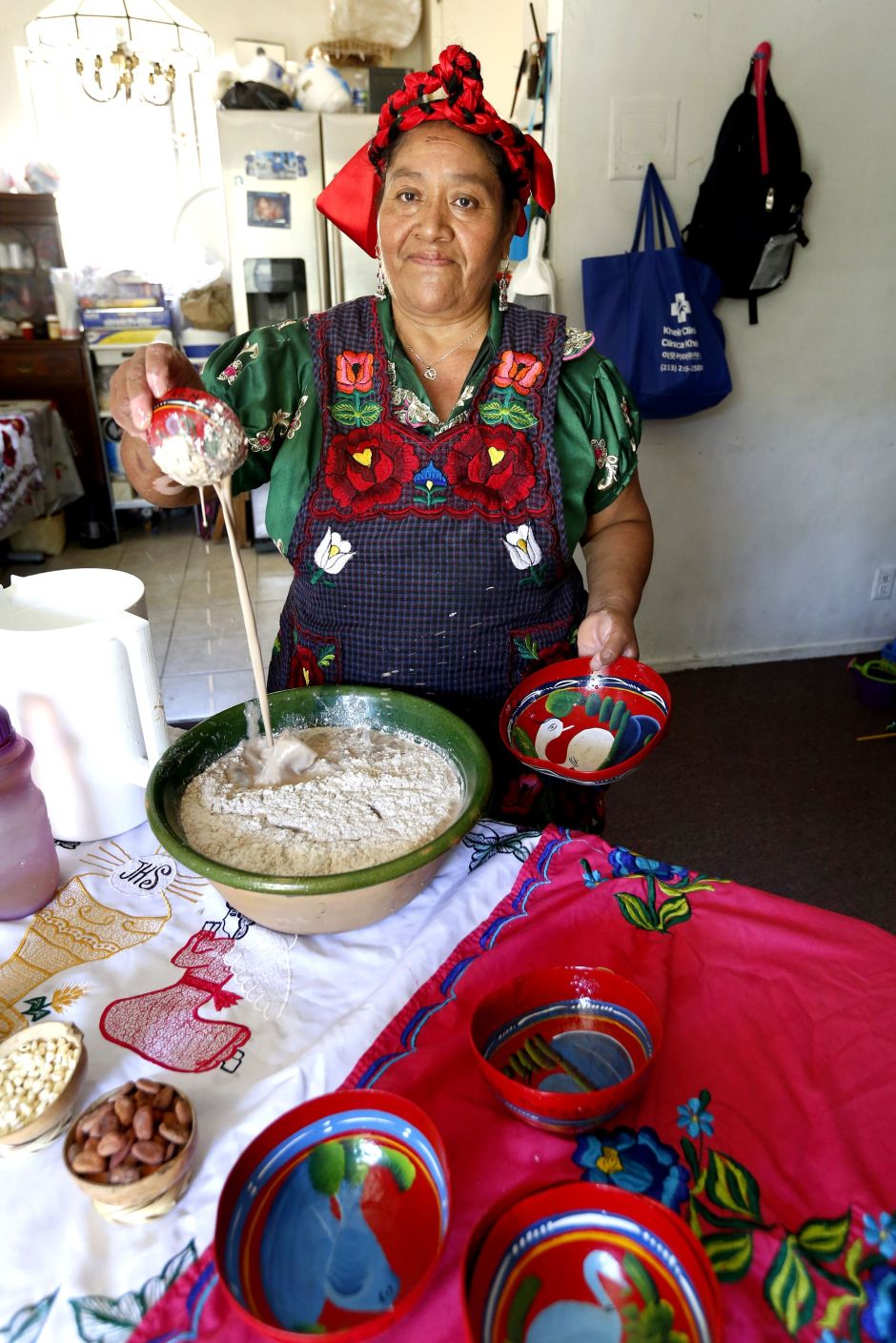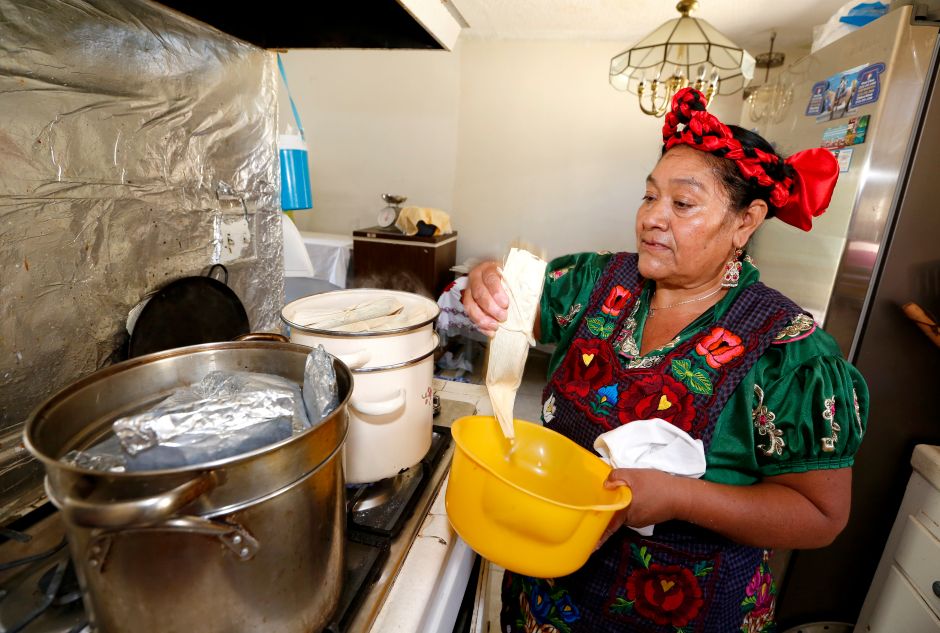Immigrant in LA account that takes years in the elaboration of the Oaxaca product, made with corn

Amalia Gutiérrez Mateo was 41 years old when she was forced to leave her town San Marcos Tlapazola, in the state of Oaxaca (Mexico) to emigrate to the United States.
"My children told me that I was only coming for six months," Amalia said, today, 53, laughing. “When I arrived (in Los Angeles) it was difficult. I wanted to go back. ”
Shortly after settling with one of her three children, Amalia says she began looking for employment opportunities.
"And since I didn't know how to work on anything else, I started making tejate (a pre-Hispanic drink made from corn, cocoa and other natural ingredients)," said the Oaxaca. "Then I made atole, tamales, nicoatole (a Oaxaca dessert) and food."
Amalia still remembers when she started selling tejate in the street. “My daughter took me to the street and I put myself on the corner of the Pico and the Western and began to shout Té Tejate!’, ‘Tamales!’, ”He said.
"(I think) that sometimes I felt sorry for people and they got out of the car and gave me money. On other occasions, I didn't sell anything and I returned home with all my sales."
However, it was his perseverance and love of his culture that despite being hundreds of miles from his homeland, decided to start getting involved with Oaxaca groups in Los Angeles.
This opportunity opened the doors for more people to know their delicious dishes, drinks and traditional desserts.
"The orders arrived later and I started to ask for 100 or up to 300 tamales," Amelia said.


The drink of the gods
However, it has been his traditional tejate the winner of the menu.
Tejate, is commonly known as ‘the drink of the gods’, since it is said that from Emperor Moctezuma II to his workers they took several jícaras of the drink a day to have strength.
It is also a substitute for much healthier sugary and / or energetic drinks, since it is completely organic. Corn, cocoa, cocoa rose, mamey bone and walnut or coconut are some of its main ingredients.
“First I sent to order ground cocoa and cocoa rose from Oaxaca and my sister-in-law sent it to me but it is expensive,” said Amelia, who gradually learned methods to obtain the ingredients at more affordable prices.
"There (in Oaxaca) is the farmer's drink, it is very famous and fresh that they drink in the morning or at noon," Amalia explained.

In her small apartment in Los Angeles, the immigrant has managed to make her tea.
On the floor he puts a plastic and a small blanket where he gets on his knees. He puts his metate on the plastic – a slightly curved rectangular volcanic stone with three legs – where the corn kernel mixed with the other inputs grinds until a smooth mass is obtained.
Sometimes you have to do the process of grinding the entire dough up to three times.
"It's a lot of arm work, sometimes it hurts back and should be done on your knees and on the floor because the table does not support the weight of the metate," Amalia said while demonstrating how she ground her dough.
After passing it three times through the metate, the mixture begins by hand with water and ice cubes. While stirring the dough, it gradually becomes a foamy and refreshing drink.
"Here we all drink tea, even my granddaughters," said Amalia, who does not lose her Zapotec tradition.
She said that everyone in her house, from her husband to her children and grandchildren, speaks Zapotec. She enjoys dressing her traditional and colorful costumes with sequins and her floral apron.
A ribbon is braided to her hair and tangled over her head forming a type of crown with a ribbon bow.

Oaxacan pride
Amalia said she is proud to see more people enjoy their food and drinks.
“I still go to the streets, there in the Pico and the Western I put myself in the afternoons and I have many clients; Whites, African Americans, of everything, ”said this woman, who has impressed many when she gives them a taste of her delicious tea. "Then when I arrive there are people I don't know waiting for me to buy."
She added that her children tell her that there is no need for her to sell on the streets but she thinks it never hurt to "have an extra little money."
“I like to work, I don't like to waste time,” said Amalia, who in the morning takes care of her granddaughters and in the afternoon goes out to sell.
In this Hispanic Heritage Month, she said she was grateful to share her culture, language and traditions with family and friends. “I like it when they invite me to parties and meetings and they tell me that I will sell my tea and my tamales,” he said.
Today, in addition to its sale on the street and at events, it also receives orders for tejate and Oaxacan food, such as tamales and even red and black mole, among other delicacies.
To place your orders you can call (323) 424-9571 or (323) 944-9820.







